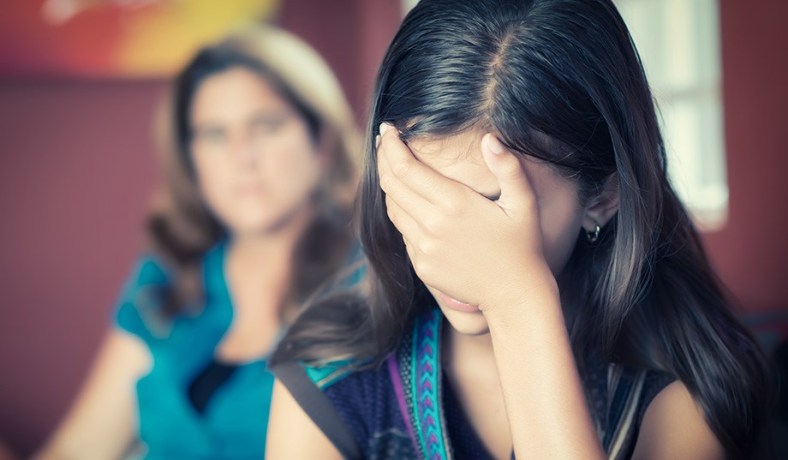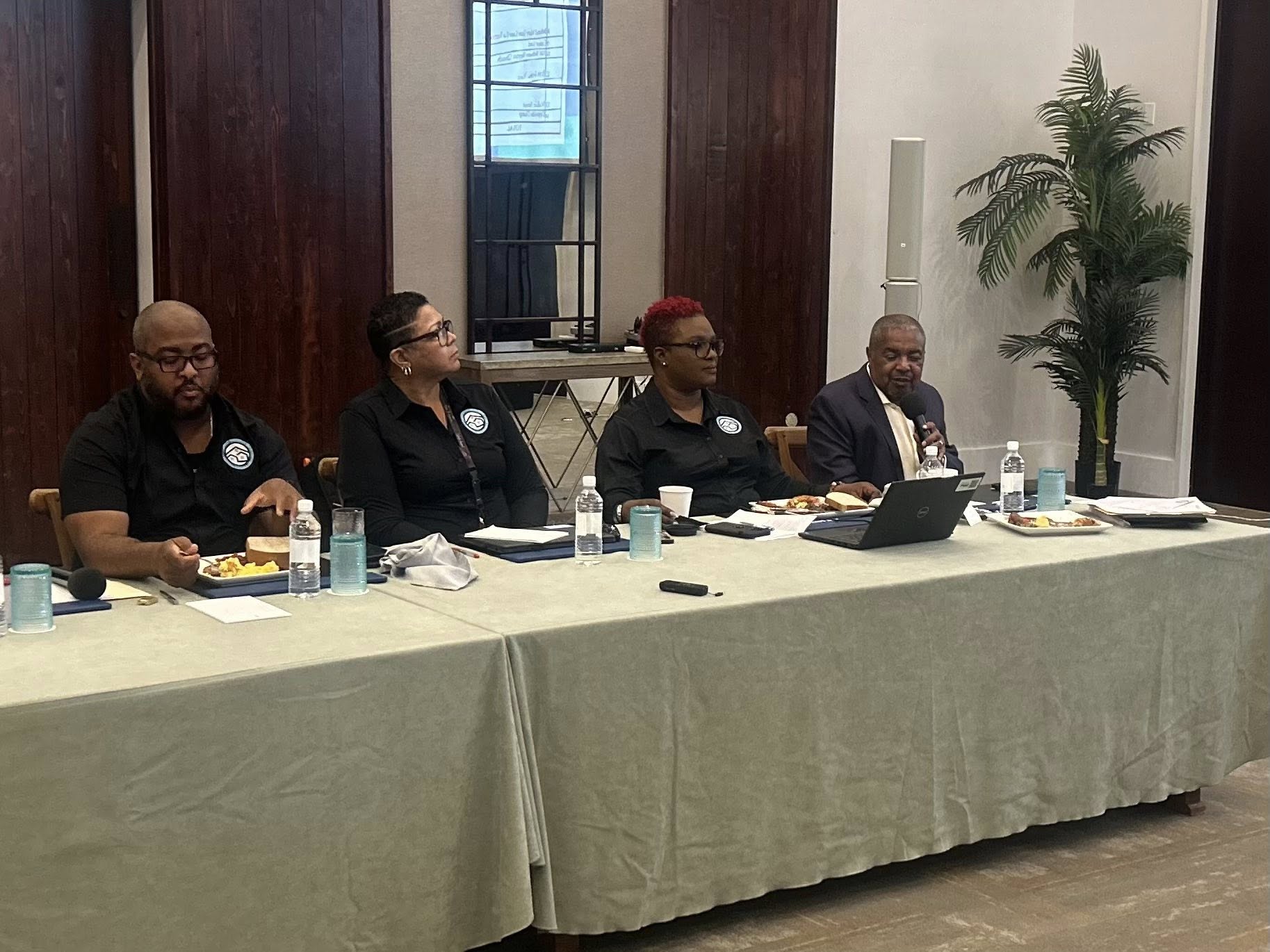TCI News
TCI: Mental Health in Adolescents
Published
7 years agoon

#Providenciales, April 3, 2019 – Turks and Caicos – The WHO defines health as “a state of complete physical, mental, and social well-being and not merely the absence of disease or infirmity…”. Mental health, specifically, is defined as not just the absence of a mental disorders but a state of well-being in which a person realizes their own abilities, is able to cope with life’s normal stresses, is able to work regularly and productively and is able to contribute to society. Good mental health is therefore the foundation for an individual’s and a community’s effective functioning and well-being. It is therefore critical to ensure the sound mental health of each individual beginning from childhood and throughout the lifespan. Hence as a society it is our duty and obligation to nurture and maintain the mental health of everyone, especially our children and adolescents. For the purpose of this article we will focus on adolescents.

Adolescence is defined as the developmental stage between ages 11 and 19/20 and is a time of great hormonal storms, decisions, pressures, identity formation, learning and personality formation. While many adolescents have good mental health, multiple physical, emotional and social changes, along with various risk factors (see beneath) can all make adolescents vulnerable to mental health problems. These factors can also determine the mental health of an individual into their adult life. This stage of life is also the time to develop healthy physical, emotional and social habits to secure one’s mental health and some of these positive habits will be discussed later.
Let’s review the statistics, according to the WHO:
- Of the world population 1 in every 6 persons is aged 10 to 19.
- 16% of the burden of disease & injury in the 10 to 19 age group is due to mental illness
- 50% of all mental health conditions start at age 14 but are largely undiagnosed or undetected, largely due to lack of knowledge, awareness and stigmatization.
- Globally depression is a leading cause of disability and illness among adolescents and the 9th leading cause of overall illness in that age group, with anxiety being the 8th leading cause.
- At its worse, depression can result in suicide and suicide is the 3rd leading cause of death worldwide among 15-19 year olds.
- Failure to address mental conditions in adolescence unavoidably results in physical and mental challenges in adulthood and consequently limits the ability to lead fulfilling lives.
- Childhood behavioral disorders are the 6th leading cause of disease burden among adolescents. Such disorders affect academic performance and usually lead to delinquency.
- Eating disorders such as anorexia, bulimia, binge eating disorder and body dysmorphic disorder normally emerge in adolescence and often co-exist with depression, anxiety and/or substance abuse.
- Mental health issues account for self-harm in adolescents and in 2016, approximately 62,000 adolescents died globally from self-harm.
- In 2016, interpersonal crime was the 2nd leading cause of death among older adolescent males.
Risk factors:
Some of the risk factors which predispose adolescents to mental illness include but are not limited to:

- Poverty and lack of opportunities, educational and otherwise.
- Physical, verbal, and emotional abuse, with special emphasis on sexual abuse.
- Parental neglect, abandonment, and incest.
- Violence and trauma at home and in the community.
- Harsh parenting and bullying.
- The stresses & struggle of identity formation as one fights for autonomy.
- Peer pressure to conform and experiment with different trends.
- Exploration of their sexual identity and sexual orientation.
- The extensive & inappropriate exposure to social media and technology.
- The disparity between their actual life and their perceptions/aspirations of the future.
- The quality of life at home and with their peers.
- Adolescents who belong to minority groups, are stigmatized or due to discrimination or exclusion.
- Chronic illness, developmental disorders, and disabilities.
- Teenage pregnancy and/or abortions, teenage parents, and those in early life marriages.
- Orphans.
- Exposure to alcohol and drug use at an early age.
- Genetic factors (hereditary traits of mental illness).
- Poor coping mechanisms and lack of social support systems.
Types of mental illness among adolescents:
While the array of mental health conditions is wide and varied, just a few common ones will be highlighted for the purpose of bringing greater awareness.
- Emotional disorders e.g. depression, anxiety, along with excessive irritability, frustration or anger and mood swings. These can also lead to clinical depression and bipolar disorder.
- Emotionally related physical symptoms e.g. stomach aches, headaches, nausea, acne.
- Behavioral disorders such as oppositional defiant disorder (ODD), conduct disorder, ADHD, and disruptive behavioral disorder.
- Eating disorders, such as anorexia nervosa, bulimia nervosa, binge eating disorder which are also linked to body dysmorphic disorder.
- Psychotic disorders such as schizophrenia in it’s different forms.
- Dissociative disorders such as dissociative identity disorder (also called multiple personality disorder) and depersonalization disorder.
- Suicide and self-harm.
- High risk behaviors e.g. drug use, promiscuity & unprotected sex, indulging in violent behaviors.
These conditions are chronic, long term conditions which can be controlled with medication, psychotherapy, and sound, consistent social support systems in the form of family, friends, mental health professionals, church and community. Once clients comply with their medication regimes and counseling and there is good support then the possibility of patients living a relatively functional life is high. Therefore, it is prudent to adopt the proactive approach in choosing prevention rather than cure when addressing mental illness, and being aware of the various risk factors empowers us to do so.
How do we nurture mental health in adolescents?

- Establishing healthy, regular sleep patterns as well as healthy daily routines for them.
- Providing a healthy diet and regular exercise for them
- Developing adaptive coping mechanisms; these should be taught/modeled by responsible caring adults. Teens look towards the adults in their life for guidance hence we must set the tone for behaviors if we wish to see them emulated.
- Teaching them how to develop good decision making skills. The decision making center of the brain does not fully develop until age 25, therefore it is crucial that we support our teens in their decision making.
- Developing healthy interpersonal relationships with everyone in their circle.
- Nurturing a healthy self-concept, with good self-esteem and self-worth.
- Teaching them to understand, appreciate, embrace and most importantly manage their emotions.
- Providing a happy, healthy home for them free of violence, abuse, aggression and anger.
- Remaining open and available for them to talk and share whatever they may need to.
- Spending quality time with them while you engage in healthy joint activities.
- Providing discipline in a way which they can understand and discuss and also setting boundaries for them to operate within.
- Remaining aware and interested in their life events, friendships, academic performance, and choices.
- Speaking positively into their lives and future and helping them plan for their future.
- Praising them for their efforts and accomplishments despite how seemingly small it may be; teens need to be encouraged especially by those they hold in high regard.
- Being a reliable, responsible, dependable model to them in every way.
- Giving them opportunities to develop autonomy and think for themselves so that they can differentiate as healthy individuals and not feel or remain overly dependent on others.
- Treating them with respect; speaking with them and not with negativity and condescension.
- Ensuring regular medical checkups and observing your teen for changes and challenges they may be experiencing.
- Placing realistic expectations on them and not making unreasonable demands. Each teen is unique with their own competencies and capabilities and therefore they should not be compared to others. Comparison brings unnecessary pressure, frustration, and discontent as teens often struggle to meet unrealistic and unfair expectations set by the adults in their lives.
Remember our adolescents are the next generation of tomorrows world, the leaders, the innovators, the decision makers and the parents of another generation. It is therefore in the best interest of all society to nurture, maintain and preserve the mental health of this precious generation with the hope that they will be given the best chance for a bright and productive future and that they will do the same for those to come after them.
Therefore, we hope that this information has brought some level of insight and will serve as a motivating force in nurturing mental health in our adolescents.
References:

- Adolescent Mental Health: WHO.int/news-room/fact-sheets/detail.
- How to Promote Good Mental Health: promisesbehavioralhealth.com/mental-health
Release: TCIG
You may like
TCI News
From Removal to Redevelopment: ISU Announces 27 Concepts
Published
6 days agoon
December 12, 2025
Turks and Caicos, December 12, 2025 – For the Turks and Caicos Islands, the shift from removal to redevelopment marks a profound national pivot — one that redefines how the country confronts a problem that has quietly reshaped its landscape for more than a decade.
At a media briefing held Tuesday, December 11, the Informal Settlements Unit (ISU) confirmed that it has now reviewed 35 informal settlement sites for full redevelopment and is advancing 27 conceptual redevelopment designs, signalling a move beyond enforcement toward long-term planning and land re-imagination.
The announcement comes after nearly three years of intensive work under the leadership of Carlos Simons KC, a former justice of the Supreme Court and one of the country’s most respected legal minds. For Simons, who is himself a Turks and Caicos Islander, the mandate has never been cosmetic. Informal settlements, he has repeatedly stressed, are not simply unsightly — they pose public safety risks, strain infrastructure, undermine land ownership regimes, and create environments vulnerable to criminal activity.
Turks and Caicos remains the only British Overseas Territory grappling with informal settlements at this scale.
From Clearance to Control of Land
Since its inception, the ISU has focused first on reclaiming land that had fallen outside the bounds of planning and regulation. According to data presented, more than 800 informal structures have been addressed across Crown land, private land, and other properties, with the bulk of activity concentrated in Providenciales, and additional operations carried out in Grand Turk and North Caicos.
Providenciales accounts for the largest share of reclaimed acreage and enforcement actions, reflecting both population density and the concentration of informal developments. In Grand Turk, ISU interventions have been more targeted, often tied to flood-prone or environmentally sensitive areas. North Caicos, while hosting fewer informal settlements, has now been formally incorporated into the Unit’s monitoring and redevelopment framework.
To date, the ISU reports approximately 35 acres of land reclaimed, creating, for the first time, a realistic platform for planned redevelopment rather than ad-hoc clearance.
Redevelopment, Not Replacement
What distinguishes this phase of the ISU’s work is not simply the scale of removal, but the clarity of what comes next.
Officials confirmed that 27 redevelopment concepts are now in progress, supported by land already under government control. These are housing-led but not housing-only designs, incorporating infrastructure layouts, access routes, drainage, and green space — a deliberate break from the sprawl and density that defined informal settlements.
housing-led but not housing-only designs, incorporating infrastructure layouts, access routes, drainage, and green space — a deliberate break from the sprawl and density that defined informal settlements.
One example shared, illustrated the potential of vertical, modular development: a 2.5-acre site, previously crowded with informal structures, re-imagined to accommodate 105 formal housing units, alongside communal space and planned utilities. The intent, ISU officials said, is to replace disorder with density done right — preserving land while increasing livability.
The Survey Behind the Strategy
Central to the ISU’s evolving approach is a comprehensive Social Needs Assessment Survey, designed not merely to count structures, but to understand the people who lived within them.
The survey spanned multiple islands and dozens of informal settlement sites, collecting data on household size, age distribution, employment status, length of residence, access to utilities, sanitation conditions, flood exposure, and vulnerability factors. It captured information across genders and age groups, with particular attention to working-age adults, children, and households headed by single earners.
Officials described the survey as essential to avoiding a blunt enforcement model. Instead, the data is being used to inform redevelopment planning, guide social interventions, and identify patterns — including how long informal settlements persist, how residents integrate into the labour force, and where the greatest risks to health and safety lie.
The findings reinforced what authorities had long suspected: informal settlements are not transient. Many households had occupied land for years, often without basic services, and in conditions that posed escalating risks during heavy rains or storms. The survey now forms a baseline against which future redevelopment and resettlement outcomes will be measured.
Targeting the Next Generation
Recognising that enforcement alone cannot dismantle a culture of informal construction, the ISU launched youth-focused initiatives over the past year, aimed squarely at prevention.
Through school engagement, creative challenges, and public education campaigns, the Unit has begun addressing the mindset that normalises shanty-style building. Officials described the youth programmes as an investment in long-term cultural change, encouraging young people to see planning, legality, and design as non-negotiable elements of national development.
The initiatives also seek to foster pride in place — reframing orderly development not as exclusionary, but as essential to safety, dignity, and opportunity.
A National Turning Point
The ISU’s presentation makes clear that Turks and Caicos has entered a new phase in confronting informal settlements — one grounded in data, planning, and land control, rather than reaction.
Whether the country can sustain the political will, funding discipline, and cross-agency coordination required to move concepts into construction remains to be seen. But for the first time, the national conversation has shifted.
This is no longer only about what must be removed.
It is about what can — and should — be built in its place.
Angle by Deandrea Hamilton. Built with ChatGPT (AI). Magnetic Media — CAPTURING LIFE.
TCI News
Stanbrook Prudhoe Score Top Flight Legal 500 Directory Rankings
Published
1 week agoon
December 11, 2025
Firm Also Secures 8 Individual Rankings and Strengthens Its Regional Leadership
[Providenciales, Turks & Caicos Islands – Stanbrook Prudhoe, a leading Caribbean law firm, is 1 of 2 firm’s ranked in Tier 1 for cross-Caribbean work and is described as having “built a strong reputation across the Caribbean for handling complex matters, multi-jurisdictional work spanning both transactional and disputes”. Sophie Stanbrook, Tim Prudhoe, Khamaal Collymore and Nadia Chiesa attract plaudits in this category.
Specific to Guyana, Sophie Stanbrook, Tim Prudhoe and Anna-Kay Brown are listed.
In addition, Stanbrook Prudhoe is again given Tier 1 status in the TCI firm rankings. Lawyers Sophie Stanbrook, Tim Prudhoe, Sam Kelly and Nadia Chiesa achieved individual rankings and Laura Miller named as a key lawyer for the firm’s Cross-Caribbean work.
and Nadia Chiesa achieved individual rankings and Laura Miller named as a key lawyer for the firm’s Cross-Caribbean work.
Since its launch in 2022, Stanbrook Prudhoe has established itself as a formidable presence in the Caribbean legal sphere, specialising in Corporate and Fiduciary, Disputes, and Restructuring & Insolvency. This strong reputation is reflected in this latest round of Legal 500 rankings.
The firm’s co-founders, Sophie Stanbrook and Tim Prudhoe, are ranked as ‘Leading Partners’, Tim being 1 of 2 lawyers also listed as such across and the Caribbean as a whole.
The firm has offices in the Cayman Islands, Guyana and the Turks and Caicos Islands. With a growing presence in the federation of St Kitts and Nevis.
Commenting on the recognition, StanbrookPrudhoe co-founder Sophie Stanbrook said, “In just three years, we’ve gone from a bold idea to a Tier 1-ranked firm leading the Caribbean legal market. This recognition proves that ambition, talent, and teamwork can redefine what’s possible in our region, and we’re only just getting started. We look forward to building on this momentum and continuing to drive the standards for legal excellence across the Caribbean.”
The Legal 500 is one of the UK’s most respected legal directories, benchmarking law firms through rigorous independent research and ranking both lawyers and their areas of expertise. For nearly 40 years, it has provided a trusted assessment of law firm capabilities worldwide, evaluating more than 150 jurisdictions through comprehensive research, client feedback, and interviews with leading practitioners.
TCI News
TCI Hosts Strategic Defence Summit as Overseas Territories Regiments Strengthen Security Partnerships
Published
2 weeks agoon
December 4, 2025
Turks and Caicos, December 4, 2025 – The Turks and Caicos Islands this week became the centre of regional security cooperation as senior defence leaders from across the British Overseas Territories gathered in Providenciales for the 4th Annual Overseas Territories Commanding Officers Conference — a three-day summit focused on strengthening capability, maritime readiness, and inter-territorial partnerships.
senior defence leaders from across the British Overseas Territories gathered in Providenciales for the 4th Annual Overseas Territories Commanding Officers Conference — a three-day summit focused on strengthening capability, maritime readiness, and inter-territorial partnerships.
Acting Governor Anya Williams and Premier Charles Washington Misick, OBE, on December 1, welcomed Lord Lancaster, a key figure in the establishment of the TCI Regiment and the current Honorary Colonel of the Cayman Islands Regiment, for a courtesy call and high-level briefing session. Lord Lancaster joined Permanent Secretary for National Security Tito Lightbourne, TCI Regiment Commanding Officer Colonel Ennis Grant, and Commanding Officers from Bermuda, Cayman, Montserrat, the Falkland Islands, and UK defence representatives.
The visit, along with the wider conference agenda, signals a meaningful step forward for the rapidly evolving TCI Regiment, which has grown into a crucial national asset for disaster response, coastal security, joint operations, and resilience planning. Lord Lancaster’s presence carries additional significance: he was instrumental in shaping the Regiment’s formation in 2020 and remains a vocal advocate for expanding the capabilities of small-territory defence units within the UK network.
At the conference’s opening ceremony, Acting Governor Williams emphasised the importance of “collaboration and strategic leadership across the Overseas Territories,” noting that shared challenges — from climate shocks to transnational crime — demand a unified approach. The Permanent Secretary echoed this, highlighting increased maritime coordination and training pathways as areas where the TCI is seeking deeper integration with its regional counterparts.
across the Overseas Territories,” noting that shared challenges — from climate shocks to transnational crime — demand a unified approach. The Permanent Secretary echoed this, highlighting increased maritime coordination and training pathways as areas where the TCI is seeking deeper integration with its regional counterparts.
Throughout the week, Commanding Officers participated in strategic discussions, intelligence and security briefings, resilience planning sessions, and on-site engagements showcasing the TCI’s developing operational infrastructure. The agenda also focused on improving interoperability — ensuring that Overseas Territories regiments can operate seamlessly together during disaster deployments, search and rescue missions, and joint maritime operations.
For the TCI Regiment, hosting the conference marks a milestone: it positions the young force as an active contributor in shaping the region’s security future rather than merely a participant. Leaders left no doubt that the momentum is intentional — and that the Turks and Caicos Islands are strengthening their role within a broader, coordinated defence framework designed to safeguard shared interests.
Angle by Deandrea Hamilton. Built with ChatGPT (AI). Magnetic Media — CAPTURING LIFE.









